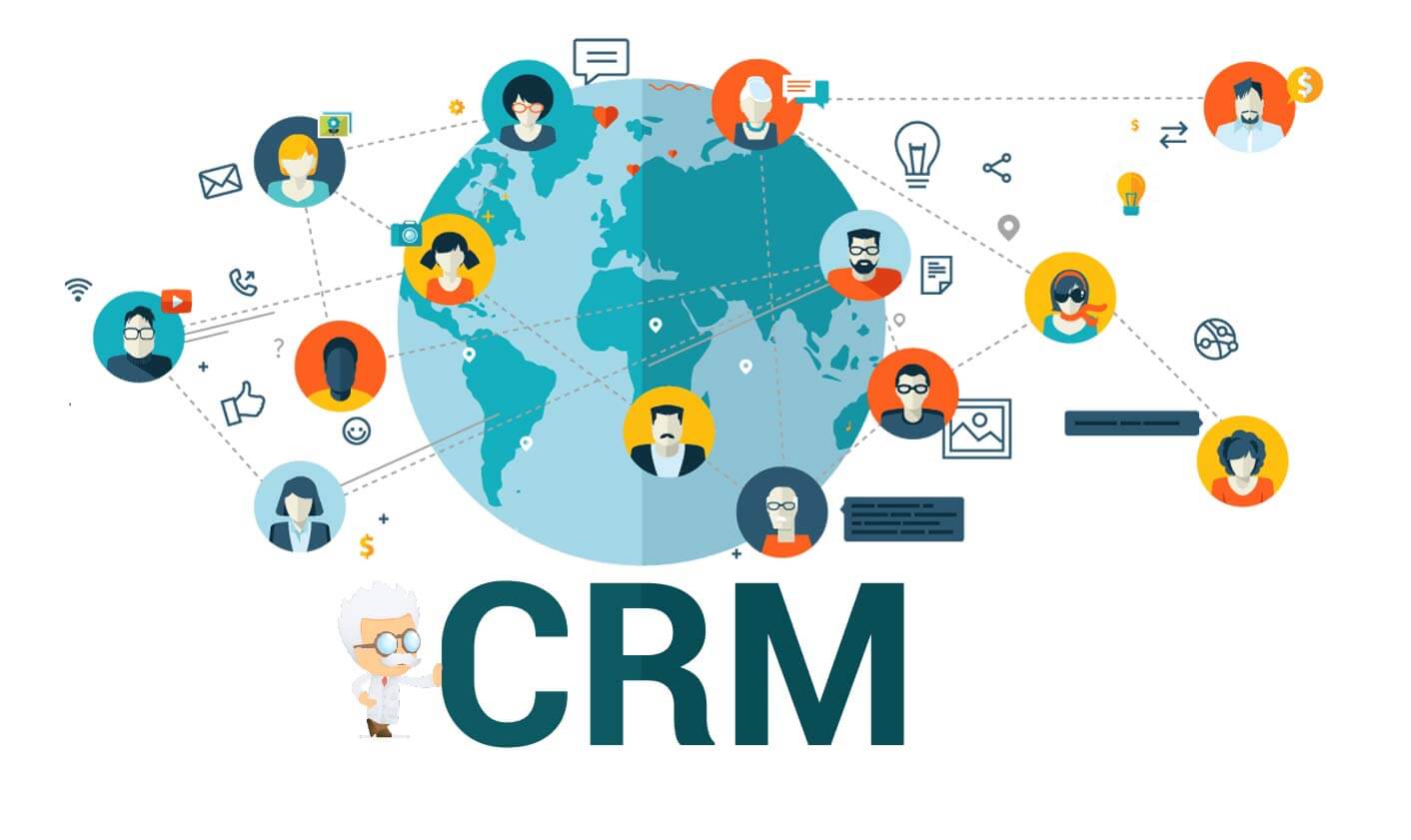As CRM computer software takes center stage, businesses are unlocking unprecedented opportunities to streamline operations, enhance customer engagement, and drive growth. This comprehensive guide delves into the intricacies of CRM software, exploring its features, benefits, and best practices for implementation and integration.
From market trends to emerging innovations, this guide empowers businesses with the knowledge they need to make informed decisions about their CRM strategy. Whether you’re a seasoned professional or a business owner just starting to explore the world of CRM, this guide will equip you with the insights and strategies to harness the transformative power of CRM computer software.
CRM Software Market Overview

The global CRM software market is currently valued at $63.6 billion and is projected to grow to $128.3 billion by 2028, with a compound annual growth rate (CAGR) of 9.5%. This growth is being driven by the increasing adoption of cloud-based CRM solutions, the growing need for data-driven customer insights, and the need for improved customer engagement and retention.
Major Players and Market Share
The major players in the CRM software market include Salesforce, SAP, Oracle, Microsoft, and Adobe. Salesforce is the market leader with a market share of 19.5%, followed by SAP with a market share of 12.3%, Oracle with a market share of 10.1%, Microsoft with a market share of 9.9%, and Adobe with a market share of 6.2%.
Key Factors Driving Market Growth, Crm computer software
The key factors driving the growth of the CRM software market include:
- The increasing adoption of cloud-based CRM solutions.
- The growing need for data-driven customer insights.
- The need for improved customer engagement and retention.
- The growing adoption of mobile CRM solutions.
- The increasing use of artificial intelligence (AI) in CRM solutions.
CRM Software Features and Capabilities
CRM software provides a comprehensive suite of features and functionalities that empower businesses to manage their customer relationships effectively. These features enable businesses to track customer interactions, streamline sales processes, improve customer service, and gain valuable insights into customer behavior.
The core features of CRM software include:
- Contact management:Stores and organizes customer contact information, including names, addresses, phone numbers, and email addresses.
- Sales management:Tracks sales opportunities, manages leads, and automates sales processes.
- Marketing automation:Creates and executes marketing campaigns, tracks customer engagement, and measures campaign performance.
- Customer service management:Provides tools for managing customer inquiries, resolving issues, and tracking customer satisfaction.
- Reporting and analytics:Generates reports and provides insights into customer behavior, sales performance, and marketing effectiveness.
These features can provide numerous benefits to businesses, including:
- Improved customer satisfaction:By providing a centralized platform for managing customer interactions, CRM software helps businesses respond to customer inquiries promptly and efficiently.
- Increased sales productivity:CRM software automates sales processes, enabling sales teams to focus on closing deals rather than administrative tasks.
- Enhanced marketing effectiveness:CRM software provides insights into customer behavior, allowing marketing teams to tailor campaigns and improve targeting.
- Improved decision-making:CRM software provides real-time data and analytics, empowering businesses to make informed decisions about their customer relationships.
When comparing different CRM solutions, it is important to consider the following factors:
- Features and functionality:Ensure that the CRM software offers the features and functionalities that are essential for your business.
- Ease of use:Choose a CRM software that is user-friendly and easy to implement and use.
- Scalability:Consider the size of your business and choose a CRM software that can scale with your growth.
- Cost:Determine your budget and choose a CRM software that fits within your financial constraints.
Benefits of Using CRM Software

Implementing CRM software offers numerous advantages for businesses, including:
Increased Sales
CRM systems help businesses track and manage customer interactions, allowing sales teams to identify opportunities and close deals more efficiently. By automating tasks and providing insights into customer behavior, CRM software can increase sales productivity and revenue.
Improved Customer Satisfaction
CRM software helps businesses provide better customer service by centralizing customer data and making it accessible to all relevant departments. This enables businesses to respond to customer inquiries quickly and efficiently, resolve issues promptly, and build stronger relationships with their customers.
Reduced Costs
CRM software can help businesses reduce costs by automating tasks, eliminating redundancies, and improving operational efficiency. By streamlining processes and reducing manual labor, CRM systems can free up resources and allow businesses to focus on more strategic initiatives.
Case Study: Salesforce
Salesforce, a leading CRM provider, has helped many businesses achieve significant benefits from implementing its CRM software. For example, the software helped a financial services company increase its sales by 25% by providing its sales team with real-time insights into customer behavior.
Challenges and Risks of CRM Implementation
While CRM software offers many benefits, there are also some challenges and risks associated with its implementation. These include:
- Cost:CRM software can be expensive to implement and maintain.
- Complexity:CRM systems can be complex to implement and use, requiring significant training and support.
- Data Security:CRM systems store sensitive customer data, so it is important to ensure that the software is secure and compliant with relevant regulations.
- Integration:CRM systems need to be integrated with other business systems, which can be challenging and time-consuming.
CRM Software Selection and Implementation
Selecting and implementing the right CRM software is crucial for businesses to maximize its benefits. Here’s a guide to help you through the process:
Factors to Consider When Evaluating CRM Solutions
Before selecting a CRM solution, evaluate the following factors:
- Business needs:Identify your specific business requirements, such as lead management, sales tracking, or customer support.
- Industry-specific features:Consider CRM solutions tailored to your industry, offering specialized functionality.
- Scalability:Ensure the CRM can accommodate your future growth and expansion.
- Integration capabilities:Choose a CRM that seamlessly integrates with your existing business systems.
- Ease of use:Opt for a CRM with a user-friendly interface that promotes user adoption.
Best Practices for Successful CRM Implementation
Follow these best practices for successful CRM implementation:
- Involve stakeholders:Engage key users and stakeholders throughout the implementation process to ensure their input and buy-in.
- Establish clear goals:Define specific objectives for CRM implementation, such as improving sales productivity or enhancing customer satisfaction.
- Customize to your needs:Tailor the CRM to align with your unique business processes and workflows.
- Train your team:Provide comprehensive training to users to ensure they are proficient in using the CRM effectively.
- Monitor and evaluate:Regularly track key performance indicators (KPIs) to assess the effectiveness of the CRM and make necessary adjustments.
CRM Software Integration
Integrating CRM software with other business systems is crucial for businesses to streamline operations and improve data management. It enables a comprehensive view of customer interactions, enhances data accuracy, and automates processes.
There are various methods of CRM integration, including:
Data Integration
- Direct Integration:Connecting CRM software directly to other systems through APIs or data connectors.
- Data Warehousing:Centralizing data from multiple sources into a data warehouse and integrating it with CRM.
Process Integration
- Workflow Automation:Automating tasks and processes across CRM and other systems, such as lead generation and customer support.
- Business Process Management (BPM):Integrating CRM with BPM tools to create and manage complex business processes.
Example of Successful CRM Integrations
- Salesforce and Salesforce Commerce Cloud:Integrating CRM with e-commerce platform for seamless customer experience across channels.
- Microsoft Dynamics 365 and Microsoft Teams:Integrating CRM with collaboration tool for enhanced communication and productivity.
CRM Software Trends and Innovations

The CRM software market is constantly evolving, with new trends and innovations emerging all the time. These trends are driven by the changing needs of businesses and the advancements in technology.
Some of the most important trends in CRM software development include:
- The rise of cloud-based CRM
- The increasing use of artificial intelligence (AI)
- The growing popularity of mobile CRM
- The integration of CRM with other business applications
These trends are all having a significant impact on the way businesses use CRM software. Cloud-based CRM is becoming increasingly popular because it is more affordable and easier to use than on-premise CRM. AI is being used to automate tasks and improve the accuracy of CRM data.
Mobile CRM is allowing businesses to manage their customer relationships from anywhere. And the integration of CRM with other business applications is helping businesses to get a complete view of their customers.
The Future of CRM Software
The future of CRM software is bright. As businesses become more and more dependent on technology, CRM software will become even more essential. CRM software will continue to evolve to meet the changing needs of businesses, and it will play an increasingly important role in helping businesses to succeed.
Final Wrap-Up: Crm Computer Software
In conclusion, CRM computer software has become an indispensable tool for businesses of all sizes. By embracing the capabilities of CRM, organizations can unlock a wealth of benefits, including increased sales, improved customer satisfaction, and streamlined operations. With careful planning, implementation, and integration, businesses can leverage CRM software to gain a competitive edge and drive sustainable growth.